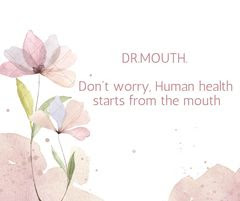Take an Idea of Autism
Causes, Symptoms and Treatment of Autism
Have you ever considered why there is such a schism between members of your family and other families around you?
This divergence created a kind of isolation for the person, which affected his social level and led to problems in interaction and social communication. This is what scientists call the autism spectrum.
Scientists have defined autism as a specific condition associated with the development of brain cells that affects a person with autism's ability to distinguish and interact with others. The spectrum of autism includes various conditions, including Asperger's syndrome and childhood disruptive disorder. It often clears up during childhood, is noticed in the infancy stage, and then accompanies the person until adulthood.
However, its severity decreases as the child grows older, as he becomes more able and willing to mix, deal and integrate into society and the surrounding environment.
If possible, we will review the causes, symptoms, complications, and prevention of autism in this article.
Causes of autism
Scientists have not narrowed down the known causes of autism spectrum disorder, but the presence of genetic factors suggests that the environment may play a significant role.
Environment factors: Still in the process of research, scientists and researchers are currently studying whether the environment and what is in it have a direct effect on the incidence of autism spectrum disorder, such as air pollution, infection with viruses, and the side effects of some medications.
Genetic factors: Researchers have found several different genes that lead to the emergence of autism spectrum disorder. Children with Down syndrome or chromosomal genes are more likely to develop autism than others.
Some genetic mutations occur automatically, directly affecting brain cells and leading to symptoms and traits of autism.
Symptoms of Autism
There are some symptoms that are easy for parents to notice, including symptoms related to social communication, interaction skills, behaviours, and interests. We go over a few of them.
Social Communication and Interaction Skills
Avoids or does not maintain eye contact.
By 9 months of age, he does not respond to his name.
By the age of nine months, does not display facial expressions of joy, sadness, anger, or surprise.
By the age of 12 months, does not engage in simple interactive games like pat-a-cake.
By the age of 12 months, makes few or no gestures (for example, does not wave goodbye).
By 15 months of age, does not share interests with others (for example, shows you an object that they like).
By the age of 18 months, there is no reason to show you something intriguing.
Interests and Behaviours
Lines up toys or other things and becomes agitated when the arrangement is altered.
Repeats words or phrases several times (called echolalia)
Every time, he plays with his toys in the same way.
Is centred on object parts (for example, wheels)
irritated by small adjustments
Protection of Autism
Mother, maintain a healthy lifestyle during pregnancy and do not take medications without consulting a doctor.
Follow-up of chronic diseases.
Reduce exposure to viruses and toxins.
Do not forget that Early diagnosis and intervention are most helpful and can improve behavior, skills and language development. We wish recovery to all children with autism.

Comments
Post a Comment